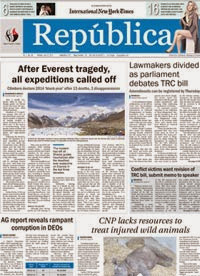
Pre-primary education in tribal language in Kerala Tribal children at an anganwadi in Attappady. Photo: K. K. Mustafah The Hindu reports that The Kerala State Commission for Protection of Child Rights (KSCPCR) is planning an educational package for tribal pre-primary children in their own language. The article titled Pre-primary education in tribal language states: "Anganwadi teachers will use languages of different tribal ethnic groups to impart pre-primary education. The curriculum has been prepared, and it includes details of the origin, history, cultural diversity, and social life among different tribal groups " The given rationale reads: “When these children begin their education, at the pre-primary stage in the anganwadis near their settlements, they find themselves lost. The language used for instruction and communication here is frighteningly strange. The process flows on to the primary level too. Majority...

